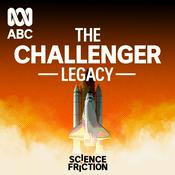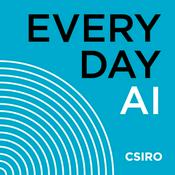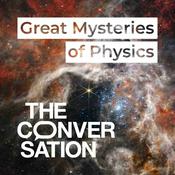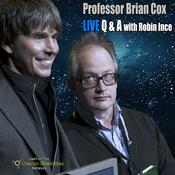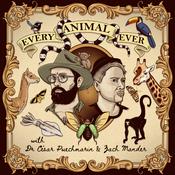1248 episodes
- There’s a long-held idea that autism is more prevalent in boys than girls—the CDC says it’s three times as common. But a growing body of research suggests the reality is more complicated. In a new study, researchers tracked autism diagnoses in millions of Swedish people born from 1985 to 2022. They found that the prevalence of autism is actually pretty even across the sexes, but people with “female” stamped on their birth certificate are often diagnosed later in life.
Host Flora Lichtman speaks with epidemiologist Caroline Fyfe about what this study teaches us about the prevalence of autism. Then, psychology researcher Rachel Moseley, an autistic woman herself, shares how late and missed diagnoses can affect autistic people.
Guests:
Dr. Caroline Fyfe is an epidemiologist at the University of Edinburgh who studied sex differences in autism diagnoses.
Dr. Rachel Moseley is a researcher in psychology at Bournemouth University in the UK, studying the experiences of autistic adults.
Transcripts for each episode are available within 1-3 days at sciencefriday.com.
Subscribe to this podcast. Plus, to stay updated on all things science, sign up for Science Friday's newsletters. - The gap between vaccine science and vaccine policy has been widening under Health Secretary Robert F. Kennedy Jr. Now, the American Medical Association and the Vaccine Integrity Project, based at the University of Minnesota, have announced that they are partnering to create their own vaccine review process, effectively creating a parallel system to the CDC’s.
Host Ira Flatow talks with Michael Osterholm, executive director of the Vaccine Integrity Project, about the role of this new review panel.
Guest: Dr. Michael Osterholm is the director of the Center for Infectious Disease Research and Policy and executive director of the Vaccine Integrity Project at the University of Minnesota.
Transcripts for each episode are available within 1-3 days at sciencefriday.com.
Subscribe to this podcast. Plus, to stay updated on all things science, sign up for Science Friday's newsletters. - While parts of the eastern and southern US have had unusually high snowfall this year, Colorado and Utah are in a snow drought. The abysmal winter sports season is just the tip of the melting iceberg: Snowpack is key to providing water throughout the year for the drought-stricken region. Joining Host Flora Lichtman to talk about this unusual winter are reporter David Condos and climate scientist Brad Udall.
Guests:
David Condos is the Southern Utah Reporter at KUER based in St. George.
Brad Udall is a senior water and climate research scientist at Colorado State University’s Colorado Water Center.
Transcripts for each episode are available within 1-3 days at sciencefriday.com.
Subscribe to this podcast. Plus, to stay updated on all things science, sign up for Science Friday's newsletters. - Figure skating is a fan favorite at the Winter Olympics—for every event, the stands are packed to watch competitors glide, jump, and spin. But what does it take to pull off these seemingly effortless moves?
Figure skating researcher Deborah King joins Host Ira Flatow to unfold the science of the sport, from the impressive jumps of US skater Ilia Malinin, to the g-forces endured by the ankles of a speeding skater.
Guest: Dr. Deborah King is a professor of exercise science and athletic training at Ithaca College in Ithaca, New York.
Transcripts for each episode are available within 1-3 days at sciencefriday.com.
Subscribe to this podcast. Plus, to stay updated on all things science, sign up for Science Friday's newsletters. - In Oregon and Colorado, you can book an appointment for psilocybin therapy, where a licensed therapist takes you on a guided trip using the drug that makes “magic” mushrooms hallucinogenic.
Under federal law, psilocybin is illegal. But within the past few years, both states greenlit the drug for supervised medical use, and New Mexico may soon follow. It’s being used to treat certain conditions, including drug-resistant depression and PTSD. With a lot more people taking the drug under state supervision, what are we learning about its safety and efficacy? Who is taking it, and can clinics make money?
Host Flora Lichtman checks in on the state of these programs with Colorado Public Radio journalist Alejandro Galva. Then, she sits down with geriatric and palliative care specialist Stacy Fischer for a research update on the therapeutic use of the drug, and the nation’s largest clinical trial for psilocybin use for advanced cancer patients facing mental health challenges.
Guests:
Alejandro Galva is the afternoon editor at Colorado Public Radio. He’s also the editor of their series “The Trip,” which covers the psychedelic therapy landscape in the state.
Dr. Stacy Fischer is a geriatric and palliative care specialist at UCHealth University of Colorado Hospital.
Transcripts for each episode are available within 1-3 days at sciencefriday.com.
Subscribe to this podcast. Plus, to stay updated on all things science, sign up for Science Friday's newsletters.
More Science podcasts
Trending Science podcasts
About Science Friday
Covering the outer reaches of space to the tiniest microbes in our bodies, Science Friday is the source for entertaining and educational stories about science, technology, and other cool stuff.
Podcast websiteListen to Science Friday, Shirtloads of Science and many other podcasts from around the world with the radio.net app

Get the free radio.net app
- Stations and podcasts to bookmark
- Stream via Wi-Fi or Bluetooth
- Supports Carplay & Android Auto
- Many other app features
Get the free radio.net app
- Stations and podcasts to bookmark
- Stream via Wi-Fi or Bluetooth
- Supports Carplay & Android Auto
- Many other app features


Science Friday
Scan code,
download the app,
start listening.
download the app,
start listening.











